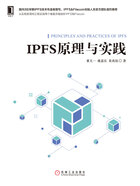
推荐序
Computing and the internet have transformed humanity. We live in an extraordinary time -- computers have amplified our capabilities and the internet has connected our species together. Software applications grant us all superpowers that our ancestors would have considered magical: we can access and search all information in seconds; we can talk face-to-face with anybody around the planet;we can broadcast our messages and speeches to everyone world-wide; and we have enhanced our minds with external computing and information storage. We have tremendous, awe-inspiring capabilities.
The properties of the internet determine our capabilities. All of these powers hinge on the properties of the internet -- if the internet breaks down, or is insecure, then so are our applications and our capabilities. We must ensure that the super-powers we have acquired continue to work, as our lives now depend on them. Most human coordination and collaboration happens over the internet-from our personal chats, to work emails, to industrial and cross-organization communication. Even hospitals, emergency services, and other systems rely on the internet. Our lives depend on how well the internet works! We must endeavor to make the internet more secure, efficient, resilient, and robust.
IPFS is upgrading the internet. We built IPFS, the InterPlanetary File System, to achieve this. IPFS is a hypermedia protocol that upgrades how we address and distribute content -- its key component is to replace Location Addressing (URLs) with Content Addressing (CID URIs). In the last few years, IPFS has created a powerful and robust application distribution platform, that millions of people benefit from world-wide. There are hundreds of thousands of computers running IPFS nodes today, distributing information and applications, and this number is growing quickly! There are encyclopedias, chat systems, marketplaces, video distribution platforms, knowledge management systems, package managers, developer tools, games, VR environments, and more. As more developers choose to develop applications or content with IPFS, more millions of people benefit world-wide. Are you going to help us upgrade the internet?
Filecoin will upgrade data storage and distribution. The next stage is to make a decentralized storage network, a public, internet-wide utility that helps us store and distribute our data efficiently, robustly, and cheaply. The goal of Filecoin is to build such a storage market, where storage providers (miners) can sell storage space over time, and clients can buy storage that is more efficient, more robust, and lower cost. This is achieved with the use of a blockchain, a token to mediate the value exchange and incent participation, smart contracts to mediate transactions, and more. Using the power of verifiable markets and game theory, we aim to make the world's largest, most resilient, and lowest cost storage network. At the time of this writing, Filecoin is under fast-paced development and headed towards its testnet and mainnet launches. This and the next few years are a great time to get involved! We are shaping the future of data storage and distribution, and you can help us make it even better.
I invite you to join this computing revolution! You can get involved by using applications powered with IPFS, or by building them yourself today. You can learn about Filecoin and join the community developing Filecoin and applications on top of it, or you can become a miner and sell storage to the network. You can build lower level applications on top of libp2p, and you can model content and its distribution with IPLD. You can use these technologies, and you can help build them.
This book is a great guide for you. Learning about all these technologies at once can be very confusing. I am thrilled that the authors have written this book, so it can guide you step by step. Though I have only been able to review a machine-translated version -- I found this to be an excellent and thorough guide for both new people just getting started, and experienced IPFS developers who want to understand the internals. It is a solid introduction and guide to IPFS, Filecoin, and all the related protocols. It contains a good overview of the systems and how they work. You will learn how our protocols use multihash, multiaddr, and other multiformats to be self-describing and future-proof. You will learn how libp2p connects computers together across a variety of transports, and makes it easy to build p2p protocols. You will learn how to model data with IPLD and content-address it with CIDs. You will learn how IPFS plugs all these protocols together into a decentralized web protocol, and how to use it to build applications. You will learn about the Filecoin protocol and how it will work. You will learn how all of these protocols work together to store, address, and move information. This book is a comprehensive and thorough guide -- I hope it serves you well! Though note an important warning: like all technology books, this is likely to become outdated as the systems continue to develop. Be sure to check online versions of the book, and the projects'documentation websites. The concepts will remain the same -- and for that, this book will hopefully serve you well for a long time -- but the technical details will surely evolve, and you will want to check up-to-date documentation.
I hope you enjoy this book. I am very grateful to the authors for writing this book: your work will help so many others!
Juan Benet
IPFS和Filecoin创始人
协议实验室创始人